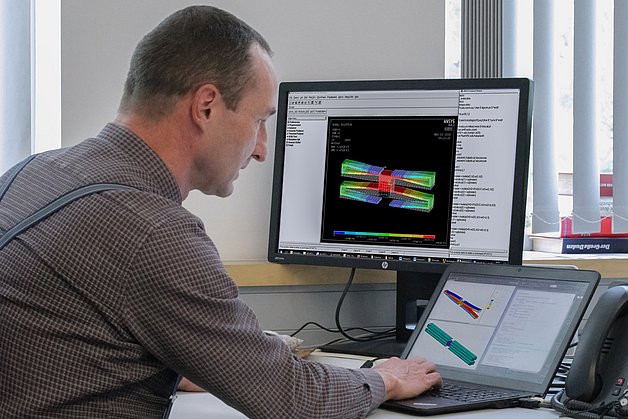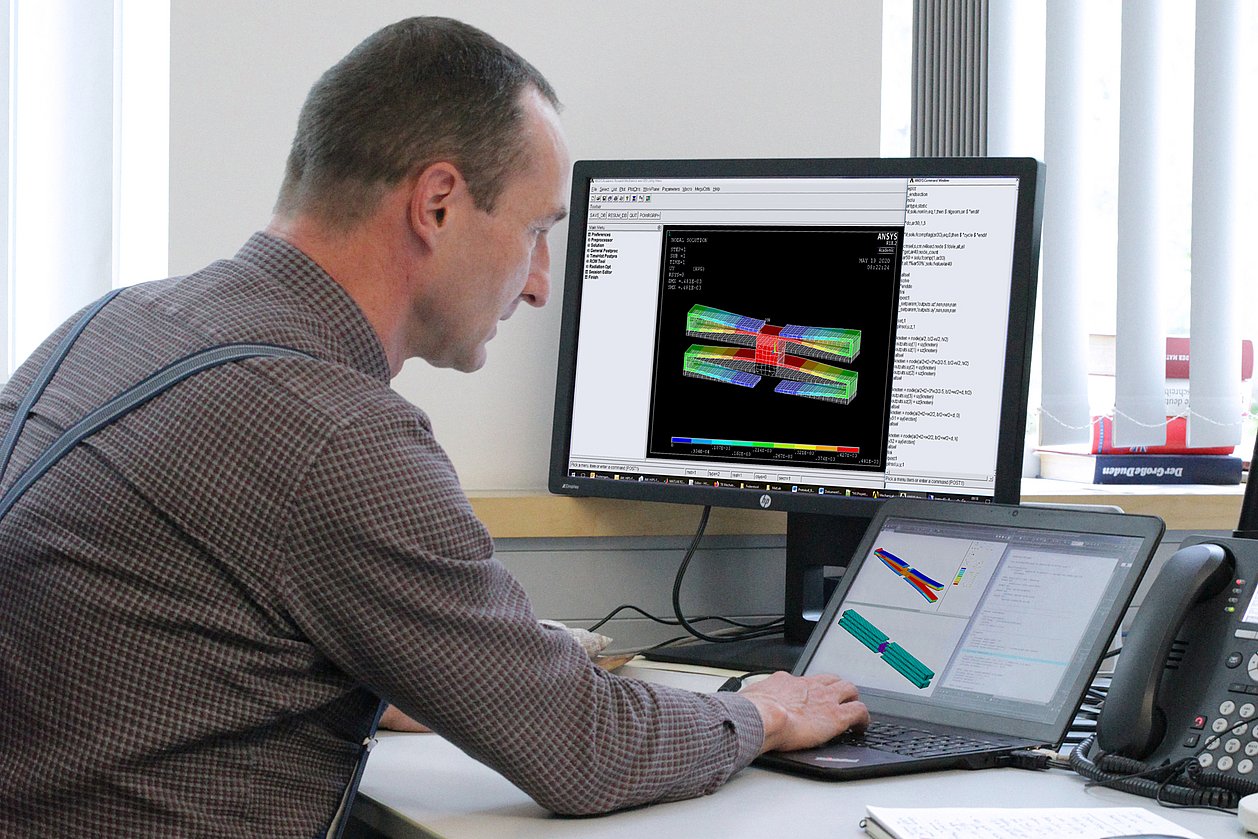Alireza Nikpourian, PhD, MEMS development engineer
“By providing access to the industrial software products and modern laboratory equipment, IMMS provides the infrastructure for working on leading edge multidisciplinary research topics, and bringing ideas into practice. It is my pleasure to work in such an active and dynamic research institute.”
“My first acquaintance with the microelectromechanical systems (MEMS) dates back to 2013 when I started my career as a PhD student in Iran. Back then, I was offered to do a PhD dissertation on the numerical modelling of the nonlinear dynamics of a MEMS resonator. As I started my research in this field, I was really fascinated by the functionality of these tiny systems, their extraordinary applications, and how practical they are in our daily life. After five years of doctoral research and one year of working in the R&D department of an industrial company, I decided to expand my experience by working in an international environment. Then, I decided to move to Germany to fulfill the goal I had set for myself.
As I was looking for a job, I came across an attractive job vacancy in the IMMS website. I applied for it and after a while, I was invited for an interview. Luckily, everything went well and I ended up getting the job and being employed as a scientific research assistant in the MEMS group, which is part of the “Mechatronics” department. As I started my career in IMMS, I joined the MagSens project, which was in cooperation with Ilmenau University of Technology.
In this project, we conducted research on a multilayer microbeam resonator consisting of a piezoelectric and a magnetostrictive layer, which can be used as a small magnetic field sensor. When the piezoelectrically actuated beam is exposed to a magnetic field, the magnetostrictive layer shows a change in its Young’s modulus, the so-called delta-E effect, which in turn causes a change in the eigenfrequency of the whole structure. The resulting frequency shift gives rise to the measurement of the magnetic field.
Beside research projects, we are also in close connection with industrial partners and X-FAB MEMS foundry. Thanks to our in-house developed MEMS library, we also design sensitive MEMS accelerometers for our international customers.
By providing access to the industrial software products and modern laboratory equipment, IMMS provides the infrastructure for working on leading edge multidisciplinary research topics, and bringing ideas into practice.
It is my pleasure to work in such an active and dynamic research institute. People here are passionate about their job and most importantly, they are ready to support each other. Whenever a problem occurs in the course of a project, no matter how big the problem is, always someone is there to help and give hints to solve it and push the project forward. Working with inspired and talented colleagues on challenging projects helps me develop my skills and mutually contribute to further development of IMMS.”
Related content

Project
Regional Growth Core HIPS
Design library, simulations and evaluation circuits for the development of novel, robust and compact SiCer sensors

Project
MagSens
IMMS was involved in research on MEMS sensors that will detect the weakest magnetic fields in the future, for example in medical technology.
The angle dependent ΔE effect in TiN/AlN/Ni micro cantilevers
Bernd Hähnlein1. Maria Kellner2. Maximilian Krey3. Alireza Nikpourian2. Jörg Pezoldt4. Steffen Michael2. Hannes Töpfer3. Stefan Krischok1. Katja Tonisch1.Sensors and Actuators A: Physical, Volume 345, 2022, 113784, ISSN 0924-4247, DOI: doi.org/10.1016/j.sna.2022.113784
1FG Technische Physik 1, Institut für Mikro- und Nanotechnologien (IMN MacroNano(R)), Technische Universität Ilmenau, Postfach 100565, Ilmenau, 98684, Germany. 2IMMS Institut für Mikroelektronik- und Mechatronik-Systeme gemeinnützige GmbH, 98693 Ilmenau, Germany. 3FG Theoretische Elektrotechnik, Institut für Mikro- und Nanotechnologien (IMN MacroNano(R)), Technische Universität Ilmenau, Postfach 100565, Ilmenau, 98684, Germany. 4FG Nanotechnologie, Institut für Mikro- und Nanotechnologien (IMN MacroNano(R)), Technische Universität Ilmenau, Postfach 100565, Ilmenau, 98684, Germany.



